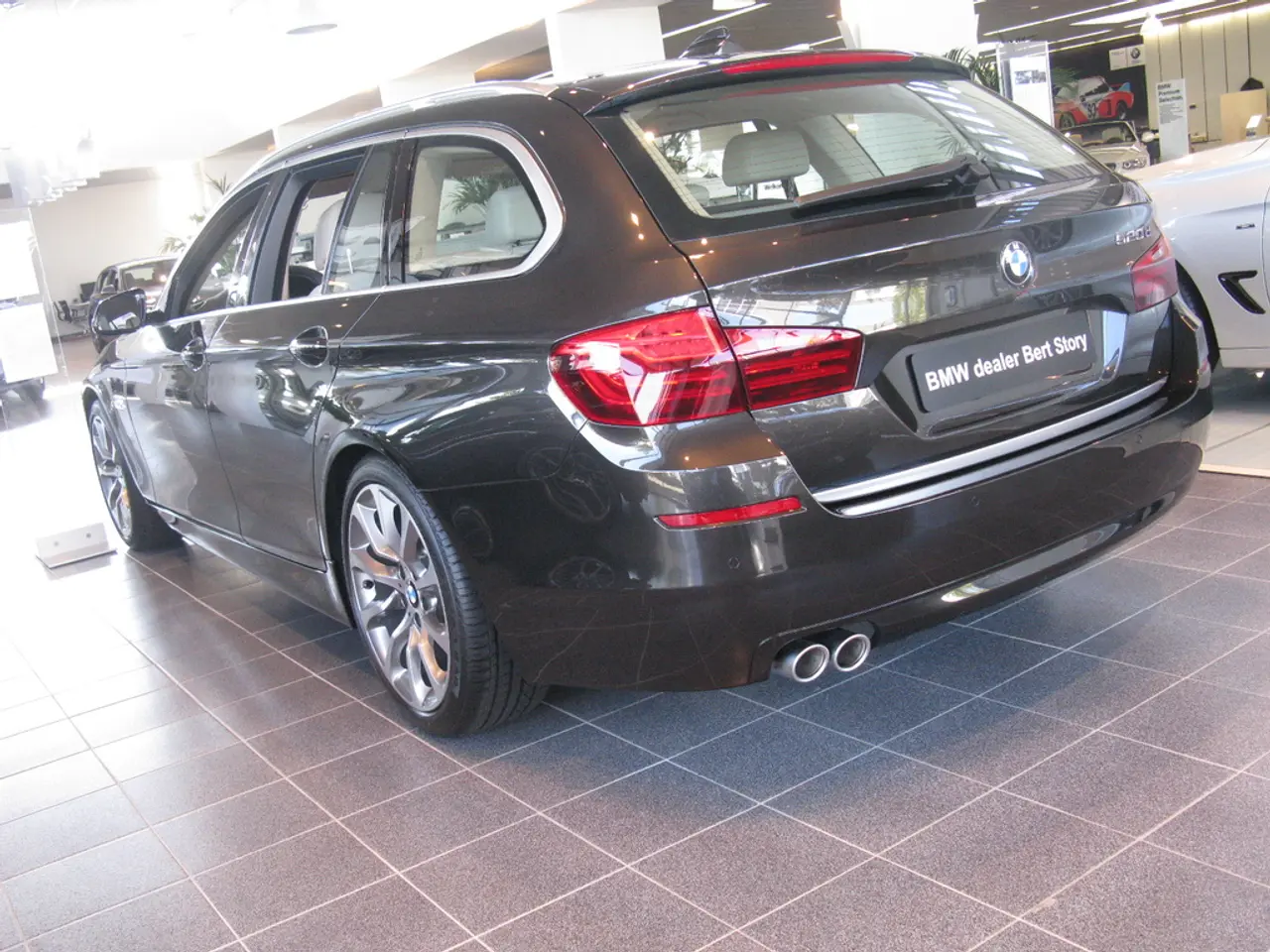Electric Vehicle Charging Stations: Details on Setup, Pricing, and Advice
In the rapidly evolving world of electric vehicles (EVs), Germany is making significant strides in providing charging infrastructure. Here's a snapshot of some notable developments in the sector.
Several companies are expanding their High-Power Charging (HPC) locations. Toom plans to have 30 HPC locations (300 kW), while Bauhaus and Hagebau aim to have 106 and 100 fast chargers respectively. The Westfalen Group offers fast charging points at Markant and Westfalen gas stations, and Das Futterhaus plans to expand its fast chargers, targeting 400 stores.
Hornbach is expanding its operations with Pfalzwerke, and Rewe Group is growing its fast charger network, currently boasting 14 locations with ultra-fast chargers. Notably, Aral pulse aims to have 3000 fast charging stations (350 kW), with a commitment to 100% green electricity and Plug & Charge facilities.
Some employers are going the extra mile for their EV-driving employees. Companies like McDonald's and Ikea provide free electricity for employees who drive electric cars to work.
Supermarkets like Aldi, Edeka, Kaufland, Lidl, and Rewe, as well as public or hotel and restaurant parking lots, offer free charging points. Burger King also aims to have 1000+ fast charging points.
Comparing providers and choosing the most favorable one can lead to significant savings. Using contract tariffs or roaming offers can save up to 10 to 20 cents per kWh, compared to ad-hoc charging. Charging at an average AC charging station costs less than charging at a fast-charging station on average.
Apps like "Ladefuchs" or websites like "GoingElectric" and "ChargeFinder" offer an overview of providers and price comparison, making it easier for EV drivers to make informed decisions.
The consortium behind Hubject (BMW Group, Bosch, EnBW, Enel X, E.ON, Mercedes-Benz, Siemens, Volkswagen) provides a Plug-and-Charge solution, enabling access to 400,000 charging points with Plug&Charge compatibility. Elli by Volkswagen, Gireve, and Shell Recharge also offer similar solutions.
Shell Recharge has 80+ fast charging points, with dynamic tariffs scheduled to start in June 2025. Metro has 130 charging points, with the largest charging park in Berlin-Friedrichshain (18 charging points). Familia allows charging at 30 locations.
Ad-hoc charging, where users can charge without a contract, app, or customer account directly on-site, is also available at many locations, usually by scanning a QR code.
As the EV landscape continues to evolve, it's clear that Germany is committed to providing a robust charging infrastructure for its growing number of EV drivers.
Read also:
- Peptide YY (PYY): Exploring its Role in Appetite Suppression, Intestinal Health, and Cognitive Links
- Toddler Health: Rotavirus Signs, Origins, and Potential Complications
- Digestive issues and heart discomfort: Root causes and associated health conditions
- House Infernos: Deadly Hazards Surpassing the Flames








